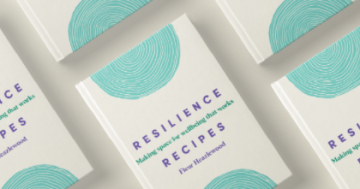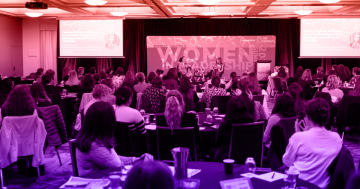Dr Pia Rowe* looks at some recent academic research on burnout.
 Folks, we need to talk about burnout. Lately, it’s been a constant feature in my newsfeed.
Folks, we need to talk about burnout. Lately, it’s been a constant feature in my newsfeed.
Once upon a time most often an individual condition, it seems as though there is now a collective exhaustion that no amount of mindfulness or employer sanctioned lunch time yoga classes can reverse.
(That is of course if you’re lucky enough to have time for a lunch break in the first place…)
Of course, not everyone can afford to just up and leave their jobs to deal with burnout.
Others are simply engaging in what is now called ‘quiet quitting’.
That is, you’re not actually resigning, but just ditching the hustle mentality that used to see us going above and beyond of what was expected.
So with that as our backdrop, let’s take a look at some recent academic research in this area.
First, let’s shine the spotlight on those who look after others, as they are often the ones who are most heavily impacted.
In ‘Burnout and Physician Gender: What Do We Know’ (Medical Care, 2021), Hoff and Lee conducted a systematic review of extant literature to investigate physician burnout as it relates to female physicians in particular.
Their review supported the notion that while both female and male doctors experience high levels of burnout regardless of their workplace, clinical specialty, workload or age, women had a higher likelihood of experiencing it – particularly with respect to the emotional exhaustion dimension.
And what about those gendered differences in medicine?
Writing in the The American Journal of Surgery (2022), Mete et al. summarise the many ways in which female physicians are still disadvantaged:
“Despite efforts to improve equity in the workplace, women surgeons continue to experience professional barriers including gender discrimination, disparities in pay and other resources, and identity-based mistreatment.
“Non-male physicians experience more harassment discrimination and abuse throughout the arc of their careers, even more-so if they are from a sexual, racial or ethnic minority.
“Female physicians are subject to inequities in recruitment, promotion and retention.
“At the same time, female physicians are more likely to practice medicine in ways that increase quality of care despite financial disincentives.”
Female physicians also report significantly higher levels of stress and anxiety, more likely to experience sleep deprivation, and spend more time than their male counterparts on household duties and childcare.
Sound familiar?
Now, we all know that being treated differently and not getting enough sleep is likely to negatively affect one’s wellbeing.
That’s kind of a non-brainer.
However, as the authors note, we have a limited understanding of how these factors interact.
Digging deeper into the gendered differences in physician burnout among male and female general surgeons, the authors discovered that female surgeons reported a lower sense of control over their schedules, and had significantly lower levels of professional fulfilment.
The bigger question then is: What can be done about it?
Firstly, it’s important to note that this was a one-off survey, and longitudinal research is needed to establish a causal relationship.
However, some conclusions and recommendations can be made based on what we already know.
As the authors note, workplace gender bias is the biggest contributor to female physicians’ career satisfaction.
As such, organisations should look beyond burnout measures, and develop strategies to address any existing gender biases.
In addition, while burnout exists independent of the individual’s caregiver status, adopting organisational strategies which allow for greater sense of control over their schedule may help alleviate the stress of those who juggle with the work/life balance.
In other words, organisations can and should establish initiatives aimed at “just and unbiased treatment, physical and psychological safety, fair pay, and equitable advancement opportunities”.
Add to that interventions to increase workplace flexibility in scheduling work hours, and we would already be making significant progress.
Read the full article here.
*Dr Pia Rowe is a Research Fellow at the University of Canberra.
This article first appeared at broadagenda.com.au.












